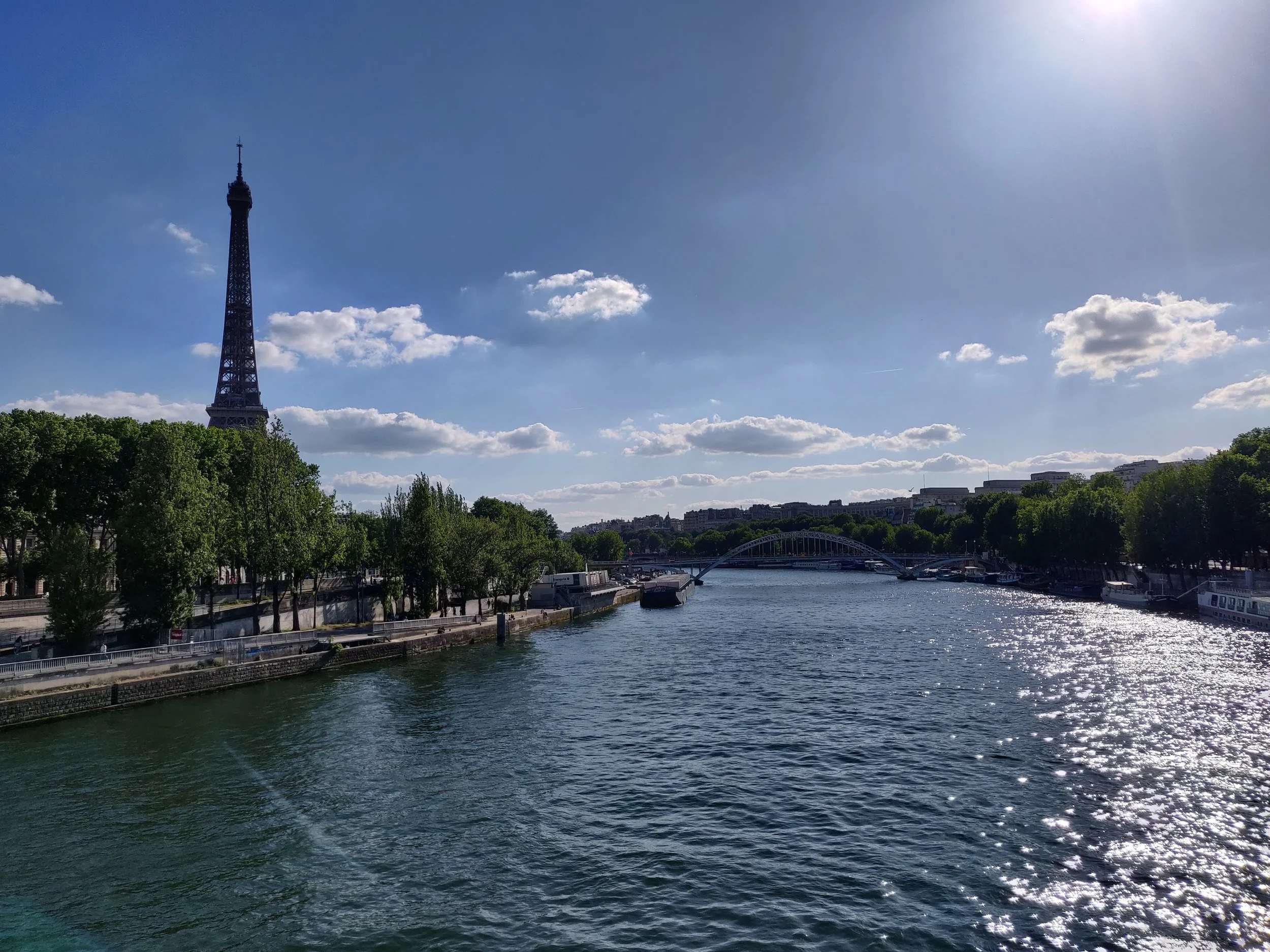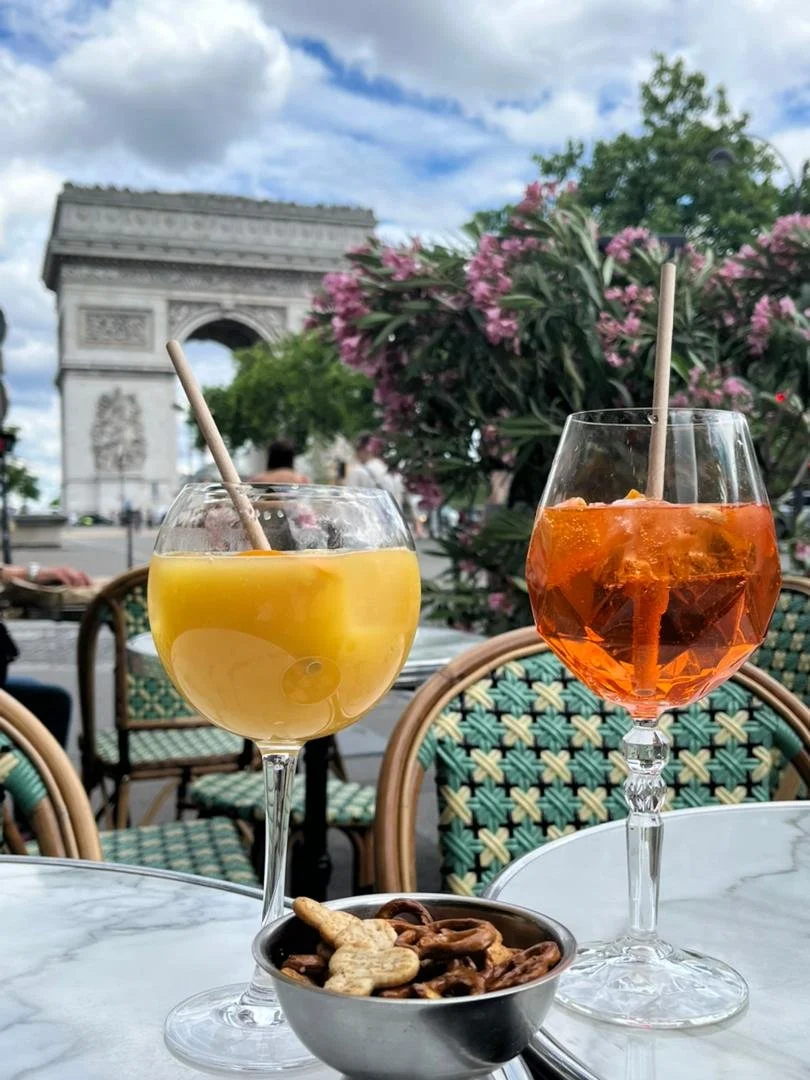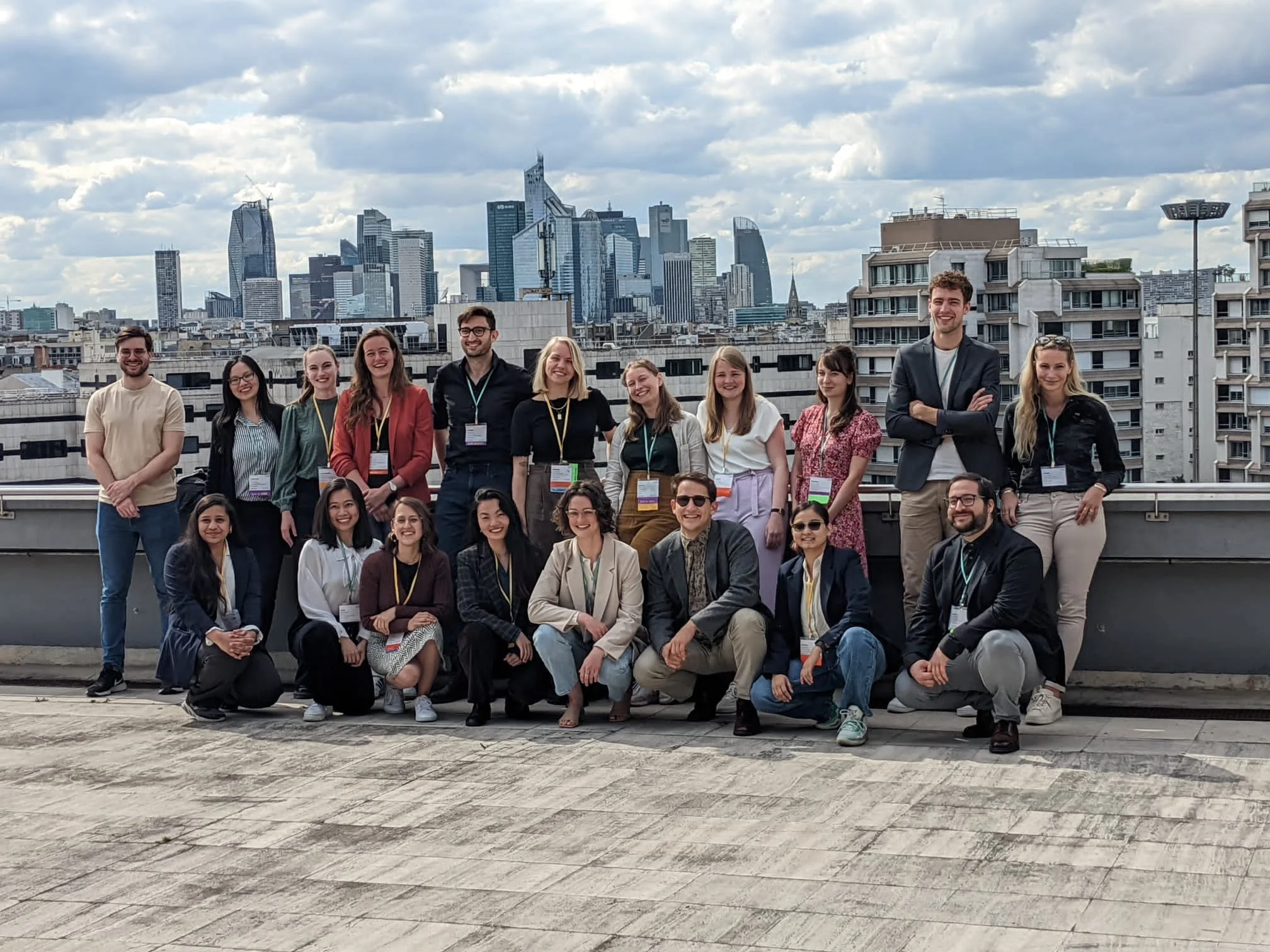The ups and downs of in-person conferences
Three weeks ago, I returned back from Paris. There, I spent 7 days together with my fellow PhD’ers, getting to know the ‘real’ researcher life - the one we have missed out on during the past 2 years due to the pandemic. We attended the annual conference of the International Communication Association - aka #ICA22. And let me tell you: IT WAS MAGNIFIQUE!
Not only did I enjoy being around my colleagues and friends, which made up (at least a tiny bit) for the lost time we all spent in our bedroom-home-offices since 2020, but I also saw Paris again after way too many years. I haven’t changed my mind, it is still a vibrant, charming, and beautiful city, although what felt like three bites of a quinoa salad cost me 18 EUR. 18! That’s just ridiculous, even being used to Amsterdam prices. But before I get too much off course here, let me go back to my conference experience. Since it was my very first in-person attandance, there were quite some lessons learned. I would like to share 5 of them with you here.
Strive for quality, not quantity.
This lesson applies to two things. Let me split them up:It applies to the events you attend. Do you remember the good old Fear Of Missing Out (FOMO) - maybe from your own teenage years? Yup, that fear is most likely to come knock on your door when being at a conference. I for sure heard that knock loud and clear. FOMO can cause discomfort when you think you need to attend everything everyday, because you simply can’t. It is in fact impossible the bigger the conference. So, instead of fearing to miss out on something, enjoy the certainty that you will do so, but hopefully you will miss events that interest you the least. And what’s wrong about that? :) Make sure to give the program a good glance in advance so that you can pick the events you are really interested in. Then, go have fun at those and let go of the rest. Think of it this way: Imagine everyone in your presentation room is there because they really want to be there, they chose this session over all others. What kind of rockstar feeling would that give you standing in the front? :)
It applies to the people you talk to. Covid-19 pandemic or not, a conference probably means (way too) many social encounters. I personally believe that I am 40% extraverted and 60% introverted. So, being around a lot of people (ICA22 had roughly 4.000 attendees!) for no less than 5 days in a row cost me energy. A lot of energy. Considering that we all just went through almost two years of social isolation and radical reduction of contacts, this social experience was intense. What I will definitely remember for my next conference is to cherish the moments in which I get to know someone new. If that happens only once or perhaps twice during the entire conference, then I’d say mission accomplished. You return home with a wider network than you came with. What more to ask for?
Take care of yourself.
I learned it the hard way: Conferences can mean too little sleep, food, and fresh air. It sounds so basic. And yes, in fact, those are three basic human needs. But during my conference experience I had a really hard time meeting them.My sleep rythm, which is normally pretty stable, was turned totally upside down. Panels last longer, FOMO is kicking in and you stay at a reception for 10 more minutes… and then again 10 more… but then the first session you want to attend in the morning still starts at 8 am - oops. 7 hours of sleep become 6 become 5 etc. So, for my next conference I will make sure to make choices: if I stay late for a reception, I skip the first early panel the next day or vice versa, depending on which event is more meaningful to me (reminder: quality not quantity!).
(Good) Food is rare. If you are lucky to find it (I was not always…) you might struggle to identify whether you can eat it due to your potential dietary restrictions. Don’t do this: If food was not labelled properly, I either ate it anyway because I was too hungry not to and later suffered from belly aches, or I did not eat it but then felt poorly nutritioned for the day and suffered from headaches instead. Do this: ALWAYS bring power bars, fruits, or other snacks that you know you like and can eat - bring it to panels, discussions, and yes even receptions. Bring it everywhere, because you will get hungry at the most random times - I promise.
Conference venues can be severly deprived of sunlight and be rather dominated by airconditioning. Not the best environment to spend an entire day in, right? So, for pro-level conference attendees: try eating your snacks outside! Finding a way out to take in some vitamin D and fresh air during breaks can be the cherry on the cake of your conference-care-package. If it helps, take some time on the first conference day to find the quickest (or nicest - there might be a tradeoff) outside space at the venue for you to escape to.
Feel the community. This was something very difficult for me to imagine before I had experienced it myself. Of course, I knew my colleagues who came with me to Paris, I knew my supervisors, and I knew some names of people I myself cite often in my own work. But I did not think that already would make me feel part of the researcher community, let alone help me meeting new people. Well, I was wrong. A big part of a conference, if not the biggest, is about catching up with people from around the world that you already know. So, it’s about the things that happen in between sessions, when getting a coffee or tea, when looking for the next room, the restroom, and so on. And of course as a first-time attendee you simply know less people to catch up with than a 2nd, 3rd, or 10th times attendee does. But, don’t you worry. You are already part of the community, so let them carry you. If you are looking for ways to meet new people, I have three tips for you:
Use your supervisors’ superpowers and ask them to introduce you to someone from their network - perhaps even one of the big fish.
Follow one of your PhD-colleagues around, because they have different supervisors so there can be different connections and boom, you just expanded your network.
And if you really happen to be the only one from your university, not being accompanied by close colleagues, supervisors, or other, then I have another tip: Use the ‘Hi, I am a first-time attendee and I am looking for…’ as a conversation starter. You will be surprised to see how caring people are when they hear it’s your first time attending. Ask for their help, they will comfort you.
Fight your imposter. Chances are high you are not only attending the conference but presenting your own work as well at some point. If so, I congratulate you. Getting accepted is a already a major achievement. Now comes the fun part. I’m serious :) You were given a slot to talk about your work, so go talk about it. See it as nothing more and nothing less. Yeah, maybe you are a bit nervous about your presentation - everyone is. Yeah, meaybe there is someone in the audience that is an expert in your field and could ask a provoking question - but hello, those are exactly the people you want to be in your session. You want the experts, not so much the people who realize after 3 minutes that they are in the wrong room and then just stay out of politeness. Go up there and tell everyone what you have been working on. On your specific study, you are the expert. No one else. Embrace critical questions, follow up on them in a conversation afterwards (another conversation starter!), and use the opportunity to kick your imposter in the butt.
And last but not least, explore. Explore the new city, country, culture you are in. Conferences can bring your to amazing, exotic, adventurous, unconventional places that you perhaps have never been to before or would otherwise never go to. Use the time you are there and spend at least one day away from the venue/hotel as a tourist - because I heard a minimum of one day (maybe even two) needs to be taken off during conference, since they tend to go over weekends and we all need compensation for that. For real! Everyone told me this.
Speaking of ‘everyone told me this’: My supervisors told me about 80% of the points I summarized above before I went to Paris. So, technically, I could have known better in advance. But, as we know from empirical research, effects of direct experiences (experinecing something yourself) tend to be stronger than effects of indirect experiences (being told something). So yeah, now I REALLY know! Perhaps then, there is also only little use of me writing about my experiences in this blogpost, but hey, I give it a shot anyways with the hope that it can be of value to someone else who is about to embark on their conference journey. And to all trained conference attendees out there: If you have additional tips, please do let me know. Paris was my first, but there are certainly many more conferences to come!
The ASCoR PhD crowd at #ICA22 in Paris




